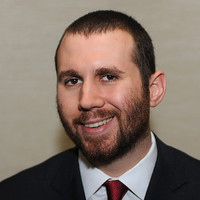Seeking to burnish his reputation as a reformer, Crown Prince Mohammed bin Salman openly criticized Saudi Arabia's religious extremism three years ago, thumbing his nose at hardline clerics and upending the established order.
An ordinary Saudi citizen can face punishment for making similar pronouncements, and Turkish and U.S. authorities say bin Salman ordered Washington Post journalist Jamal Khashoggi's brutal 2018 murder for unflattering coverage and commentary about the kingdom.
A social credit system punishes disloyalty among China's nearly 1.4 billion inhabitants, but senior Communist Party members enjoy the freedom to question authority. And while North Korean dissenters are sent to forced labor camps, dictator Kim Jong Un is known for his combative public statements.
The world's most repressive countries are home to some of the most outspoken heads of state and government officials. While that's hardly a groundbreaking insight, it may be news to Dennis Parker.
A former director of the American Civil Liberties Union's Racial Justice Program, Parker is quoted in a June 6 New York Times story on the ACLU's current struggle to balance free speech advocacy with its support for progressive causes. The group made its bones defending unsympathetic speakers including the Ku Klux Klan, but today it's less likely to represent such controversial clients.
"First Amendment protections are disproportionately enjoyed by people of power and privilege," Parker told Times reporter Michael Powell.
Free expression is a core Enlightenment value that liberals once embraced without reservation. It's falling out of favor among the ascendant "woke" left, whose fealty to political correctness often causes progressives to prize collective comfort over individual liberty.
Parker echoed a charge that's all too common in postmodern identity politics, which assigns virtue to marginalized groups and blame to members of ethnic, religious and cultural majorities. But the premise that free speech protections are chiefly for powerful people is false.
First Amendment lawyer Adam Goldstein debunked the misguided claim in a January tweet: "'Powerful people abuse freedom!' No, powerful people don't use freedom at all, they use power. Freedom is the right to challenge those people. Anybody telling you that giving up your rights will protect you is a con artist."
Authoritarian leaders, high-ranking government officials and well-connected oligarchs don't have to walk on eggshells and watch their words. But attributing their freewheeling and often caustic speech to overly permissive laws is absurd.
"A classic mistake is to think that we should limit the First Amendment b/c its benefits accrue primarily to the powerful," Goldstein wrote in a follow-up tweet. "That's an ideological illusion. Lots of places have powerful people who speak freely with no 1A. Instead, 1A is a unique right to challenge power."
It's in the absence of robust legal protections, not because of them, that speech becomes a power game. A report on the Congressional-Executive Commission on China's website headlined "Freedom of Expression in China: A Privilege, Not a Right" says it all.
Progressives in the ACLU's ranks want to deemphasize free speech litigation and accelerate the organization's shift from a nonpartisan defender of civil liberties to an unabashedly left-wing interest group. If the retreat allows for a gradual erosion of expressive rights, they will ultimately undermine the very causes they champion.
Racial justice protests rely on the First Amendment's speech, assembly and petition clauses. The free-exercise clause allows religious minorities to practice their faith, and the establishment clause prevents public-school teachers and principals from proselytizing to impressionable students. If courts strike down Republican-led efforts to banish critical race theory from the classroom, it will be on First Amendment grounds.
"The trouble with fighting for human freedom," H.L. Mencken famously wrote, "is that one spends most of one's time defending scoundrels. For it is against scoundrels that oppressive laws are first aimed, and oppression must be stopped at the beginning if it is to be stopped at all."
Today's ACLU would be reluctant to defend neo-Nazis' right to march or the Westboro Baptist Church's right to picket military funerals. These landmark cases are frequently cited in court decisions that benefit Black, Latino and LGBTQ litigants.
No lawyer can swing at every pitch, but letting censorship against enemies go unchallenged today will lead to headaches for allies tomorrow.
Corey Friedman is an opinion journalist who explores solutions to political conflicts from an independent perspective. Follow him on Twitter @coreywrites. To find out more about Corey Friedman and read features by other Creators writers and cartoonists, visit the Creators webpage at www.creators.com.
Photo credit: COFFEEMEPLEASE at Pixabay






View Comments